Puppy mills are pretty abhorrent places, where dogs are deprived of space, social interaction, and adequate healthcare.
They’re not a place you want to support with your wallet — in fact, you may want to actively work to take a stand against puppy mills.
You want to help, but identifying a puppy mill can be tricky. How can you tell if you’re looking at a puppy mill? What’s the difference between a puppy mill and a breeder?
Let’s get into the specifics about how to identify a puppy mill — and what you can do if you want to report one.
How Can I Identify a Puppy Mill?
The truth is, you’re not likely to ever see a puppy mill.
Puppy mills don’t allow visitors and aren’t going to be downtown near you. They’re often in rural areas or big warehouses — it’s a farming operation after all.
The communication that you have with the breeder is your best bet of identifying a good breeder as opposed to a puppy mill breeder.
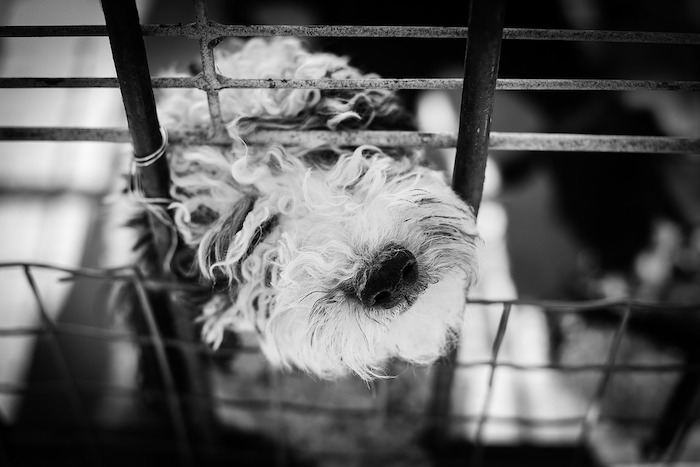
Let’s talk about red flags that indicate you may be talking with a puppy mill.
Red Flags! You May be Dealing with a Puppy Mill If…
- The “breeder” seems fixated on making sale ASAP – as in today, tomorrow, or next week.
- You found the “breeder” on Craigslist, Kijiji, or on online forums dedicated to puppy sales.
- The “breeder” can’t answer questions about how they focus on breed standard in their dogs. Saying they breed “for companionship” doesn’t count!
- The “breeder” won’t let you meet the parents of your puppy.
- You’re at a pet store – nearly all pet stores source puppies from puppy mills.
- The “breeder” won’t send you photos of where the puppies are raised or give details on socialization.
- The puppies only have a USDA health certificate rather than full vet records of vaccinations, etc.
Let’s dig into this a bit more. How can you really tell the difference between a good breeder and a puppy mill? Aren’t they kind of the same thing?
Not at all — let me explain.
Puppy Mill vs Breeder: What is the Difference?
Recently I read an article titled, “I tried a $20 pedicure vs. a $120 pedicure and basically nothing was the same.”
This is kind of how I think of good dog breeders versus puppy mills.
While of course, there’s a wide spectrum of dog breeders ranging from top-of-the-line dog breeders and puppy mills (just like there are also $50, $80, and $100 pedicures to choose from), there are many indicators you can use to clue you in about what kind of breeder you are dealing with.
But unlike with pedicures, you can’t go by price alone!
The list below can help guide you – if you’re talking to a breeder who matches more with the 2nd column than the first, stay away!
Also, make sure to check out our guide on identifying a quality breeder for more details if you’re looking for a new pup.
| Factor | Excellent Breeder | Puppy Mill |
|---|---|---|
| Number of litters at one time | Generally, only one – may have two in special circumstances | Many |
| Why they breed | Bettering the breed, towards a purpose | Profit |
| Veterinary care for the mothers | Extensive, including preventative care and screenings | Minimal to non-existant |
| Age of young mother dogs | 2+ years old | As soon as they’re able to physically breed |
| Health screening for adults | Extensive, including X-rays and specific tests for common disorders. | None, often breed sick or genetically diseased animals. |
| Health screening for puppies | Extensive, generally pre-vaccinated and dewormed at minimum | Minimal to meet state and federal laws. May come with a “health certificate” |
| Process for screening owners | Questionnaires, waiting lists, and matching puppies to owners. Focused on making a match, not making a sale. | None. Ship puppies to pet stores, sellers that meet in parking lots, or sell over the internet, never meet owners or get to know them |
| Handling of puppies | Extensive socialization with children, textures, other dogs, sounds, etc | None |
| Breeding Facility (note: you’re unlikely to see this in a puppy mill) | In-home, puppies are raised with the family. Good breeders are happy to share photos of their puppy-raising setups if they don’t allow visitors (often for immunity reasons) | Outdoors or in a warehouse, may be stacked cages. |
| Contracts | Often require contracts to ensure puppies are returned to the breeder if anything goes wrong, may require people to sign that they won’t breed the dogs | None |
| Titles on dogs | Generally, dogs have titled in one or more sports – meaning the dogs have competed and won in dog-specific sport venues. | None |
| Where you get the puppy | In-person or potentially shipped after discussion and planning with owners. | Pet stores, parking lots, and/or online puppy stores. |
| Puppy “Looks” | Focused on health, fitness, purpose, and/or trueness to breed standard | Focus on cuteness or exotic colors |
| Puppy availability | Almost always waitlists | Immediately |
| Involvement in dog activities | Almost always a member of a breed club or sport club (agility, obedience, conformation, herding, flyball, hunting, etc) | None |
| Registration of puppies | AKC, UKC, or CKC at minimum — unless the puppy is a purpose-bred mix. | Increasing in frequency but still unlikely. Not a good measure to rely on alone. |
| Puppy training before you purchase | Started on grooming, bathing, potty training, crate training, and more | None |
| Age of puppies at time of purchase | At least eight weeks old, potentially up to twelve weeks old or older. | As young as five or six weeks old, or as young as the state laws allow. |
| Communication with you before purchase | Extensive — expect hours on the phone or over email. Generally will be enthusiastic about letting you meet the parents or see the facility if it’s safe for the puppies as far as vaccination schedules go. Expect lots of questions from the breeder. | Nonexistent, or only enough to “make a sale” |
| Post-purchase communication | Often extensive. Excellent breeders want to hear how their pups are growing up and love to hear feedback. | None |
| Number of breeds sold | One, maybe two or three | Numerous |
A good breeder will almost always have a lot of questions for you about why you’re interested in their breed and their dogs. They’ll want to know a lot about your lifestyle and will work to match you with the right dog.
A puppy mill, meanwhile, will simply sell you a puppy for the right price.
This is probably the easiest indicator of what quality breeder you are dealing with – if no questions are asked of you and you are not evaluated for ownership in any way, you aren’t dealing with a reputable breeder.
Grey-Zone Breeders: Not Worth the Money
While a really terrible puppy mill and a top-notch breeder are easy to identify, there are plenty of grey-zone breeders out there too.
These breeders might be well-intentioned, or they might just be in it for a quick buck.
Lots of breeders will keep their dogs outdoors (which isn’t a problem if you want a full-time hunting dog, but for most casual owners, this is less than ideal), breed multiple dogs at once, or breed dogs with genetic issues.
You need to only spend a few seconds on your local classifieds to see listings for puppies from these grey zone breeders.
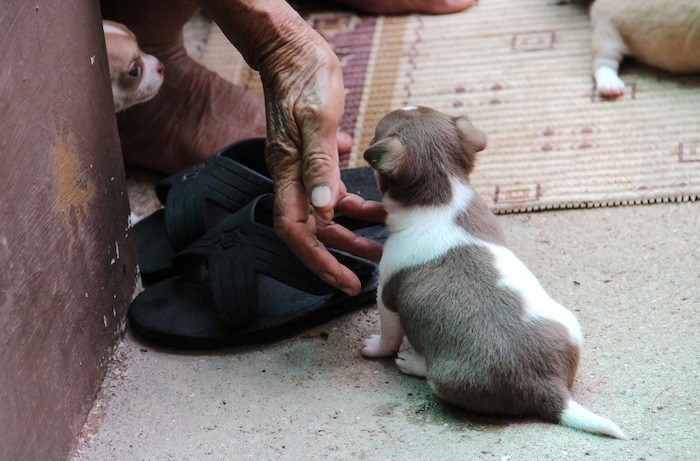
While I’m not a fan of “backyard breeders” who think that they’ve created the next great designer mixed breed or just love their one dog and want to let her have babies, they’re not the same as puppy mills.
Grey-zone breeders aren’t universally bad, but these breeders aren’t doing much to keep purebred dogs healthy, so they’re really not worth the money.
Rather than dealing with a grey-zone breeder, I’d suggest going for a high-end breeder or for a shelter dog. If you find yourself saying that you don’t need all of the bells and whistles of a high-end breeder, you’ll be just as happy with a shelter dog!
The Laws Surrounding Puppy Mills
USDA papers and licenses do not mean a breeder isn’t a puppy mill.
The Animal Welfare Act (AWA) outlines the minimum standards for dogs and cats in the United States. Unfortunately, the AWA allows conditions that most of us would consider totally unacceptable for our beloved pets.
States have different specific laws for puppy mills, but generally, you’ll see that the minimum level of care is not very high.
The AWA only covers “wholesale” breeders that sell their puppies to pet stores or online. Many more operate through loopholes like Craigslist or Kijiji to deploy salespeople with puppies. Some even pose as “rescue groups” with high “adoption fees.”
Even without tricks involving Craigslist, many puppy mill breeders are able to easily get away with not even meeting the AWA’s minimum standards.
According to the Humane Society of the United States:
“Inspection records obtained by The HSUS show that many USDA-licensed breeders get away with repeated violations of the Animal Welfare Act. These violators are rarely fined and their licenses are rarely suspended. Facilities with long histories of repeated violations for basic care conditions are often allowed to renew their licenses again and again.”
In short, the USDA and the AWA do very little to protect dogs from puppy mills – paperwork from USDA doesn’t mean you’re going with a good breeder.
This means that your best option for fighting against puppy mills is to be a savvy owner and avoid any breeder that sends up red or even yellow flags.
How Do Puppy Mills Work?
Large-scale puppy mills and puppy farms generally work through various stages to get the puppy from the farm to the owner.
At the puppy mill, dogs are generally housed in stacked wire crates or in large outdoor runs.
When the puppies are starting to eat solid food, they are separated from their mother. This is often done when the puppies are much younger than recommended – the puppies might only be five or six weeks old.
Most recommendations say puppies should stay with their litter until they’re between eight and twelve weeks old, depending on the breed and the goals.
Part 1: Puppy Brokers
The puppies are initially sold to a broker, whether that’s a regular partner of the puppy mill or someone at an auction. Dog brokers work as middlemen between the puppy mill and the pet store to help the pet store have the right assortment of breeds.
There are about 300 USDA licensed puppy brokers in the US – and potentially many more who are operating without a license.
The puppy broker transports the puppies, at times over long distances, to bring them to the pet store. Many puppy brokers also now work through the internet, depicting themselves as “puppy finders.” They help “match” an owner to a puppy mill puppy.
Of course, the online buyer is just looking for a cute puppy. The buyer probably believes that the puppy finder is truly there to help – and of
Part 2: Puppy Transporters
Transporters are the ones who physically bring the puppies to where they’ll be sold. Most puppy mills are located in Ohio, Missouri, Indiana, and Pennsylvania – but buyers are across the world.
There’s no limit to the number of hours of continuous travel for puppies, and the puppy transporter only needs to offer the puppies food and water every 12 hours.
The transporters and brokers are the ones who actually bring the puppies to pet stores.
Part 3: Auctions
Puppies and unwanted adult dogs may also be sold at puppy auctions. This semi-public forum allows dog breeders and brokers to meet under one roof. Some rescues also specialize in taking dogs from auction houses.
Unfortunately, some of these rescues actually purchase the puppies and adopt them out at a higher fee – essentially doing the same thing as reselling the dogs. That’s why finding a reputable rescue is so important!
Part 4: Pet Stores
This is the final stop before
Of course, the owner of a pet store would never admit that his puppies come from a cruel puppy mill. Owners of pet stores generally fall back on USDA regulations and accreditations, using these laws to soothe concerned customers.
Unfortunately, this smooth talk is almost never actually true. Any small-scale breeder would not provide a single puppy of a single breed to a pet store.
Luckily, some states are now mandating that pet stores only sell rescue dogs. Other pet stores (like my local PetCo) only stock dogs and cats from local rescues.
While I’m certainly not against responsible breeders, it’s always better to adopt a dog from a shelter than it is to support puppy mills.
Want to learn more about puppy mills? Check out 30 Disturbing Puppy Mill Statistics.
How Can I Report a Puppy Mill?
You’ve spotted a potential puppy mill – can you report it? Maybe. But many puppy mills are licensed.
The repercussions for not being licensed or violating terms are modest at best. That said, you can still report a puppy mill to the Humane Society of the United States. You can also contact local law enforcement or shelters to see what resources they have to get involved.
Getting the HSUS involved is one of the best bets to ensure that there’s follow up and documentation for these facilities.
Again, unfortunately, many puppy mills and large-scale breeding operations are legal. You can read a bit more about the legality of puppy mills in our article on “Things to Know Before Adopting a Puppy Mill Rescue Dog.”
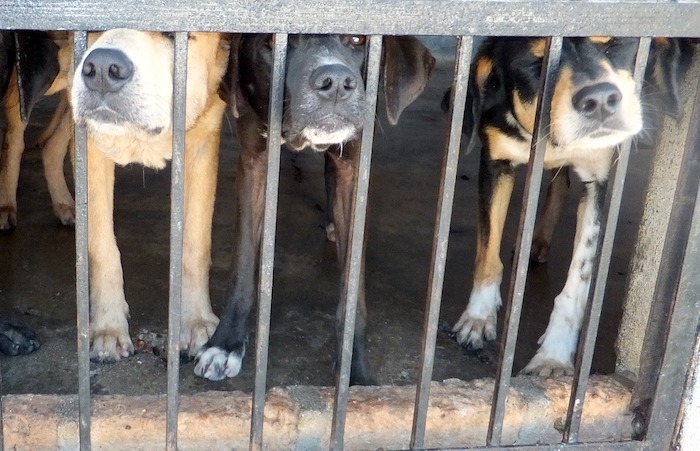
What Can I Do To Stop Puppy Mills?
If you’re not likely to ever even see a puppy mill, and if official channels will do little to shut down the puppy mills you do discover, then what’s left for you to do?
If you want to help, simply don’t support puppy mills. Don’t buy puppies from them.
Share what you’ve learned here with friends and family when they talk about getting a pup to ensure that they too avoid inadvertently supporting puppy mills.
Puppy Mill Dog Symptons : Do I Have a Puppy Mill Dog?
If your dog came to you from a mysterious background, you may now find yourself wondering – do I have a puppy mill dog myself? How can one identify a puppy mill dog?
It can be hard to be 100% sure that your dog came from a puppy mill just based on your dog’s behavior.
Many neglected dogs, dogs from hoarding cases, or undersocialized dogs show very similar behavior patterns to puppy mill dogs. Some puppy mill dogs are also relatively well-adjusted.
In general, however, you might have a puppy mill dog in your home if you see many of the following traits:
- Your dog is afraid of almost everything that’s new, including other people and new surfaces.
- Your dog is more comfortable in her crate than outside of it.
- Your dog seems comfortable with other dogs of the same size, but not much else.
- Your dog doesn’t know any behaviors, even the basics like
sit or walking on a leash. - Your dog seems comfortable with peeing or pooping inside of her crate.
- Your dog has bad teeth, foot infections, or other health problems.
- Your dog shows few social behaviors with humans. Abused dogs (dogs that were actually hit by their owners) often show groveling, appeasing behaviors – puppy mill dogs are often more aloof or outwardly fearful.
It’s also more common for small dogs to come from puppy mills.
Though I’ve been part of German Shepherd and Husky puppy mill busts, I’ve seen far more small breed dogs coming from puppy mills. Small, white, fluffy dogs seem particularly common.
How to Avoid Puppy Mills: Trust Your Gut, Not Your Heart
Almost all puppies are universally cute. But being critical and alert will do you (and all the dogs of the world) far more good than if you purchase a puppy mill puppy.
If you remember one thing about identifying puppy mills, remember this: a good breeder will always be happy to answer your questions about the breed and their dogs honestly and in-depth.
While they may ship puppies or want to meet you away from their home, this is a far cry from the shady sales tactics and empty promises deployed by puppy mills.
Don’t be fooled by licensing or health certificates — ask for relevant health screening for the parents and ask what vaccinations and socialization the puppies are had already.
If something feels off, trust your gut. Walk away and try to avoid the temptation to “rescue” one puppy by purchasing it. This only supports an incredibly dark and damaging industry.
What has your experience been with puppy mills? Share your thoughts in the comments below!
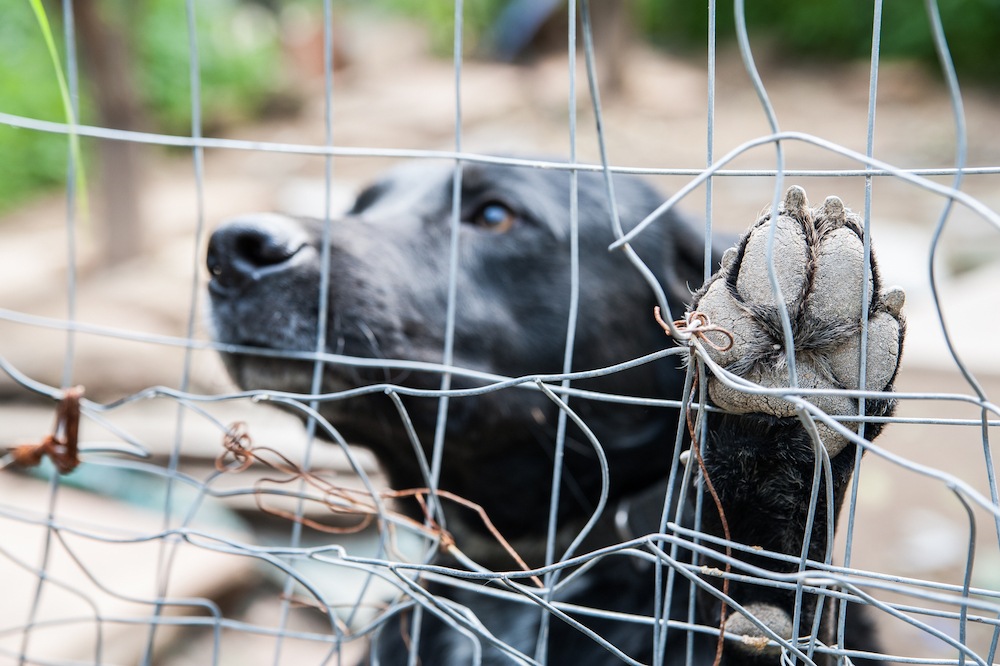



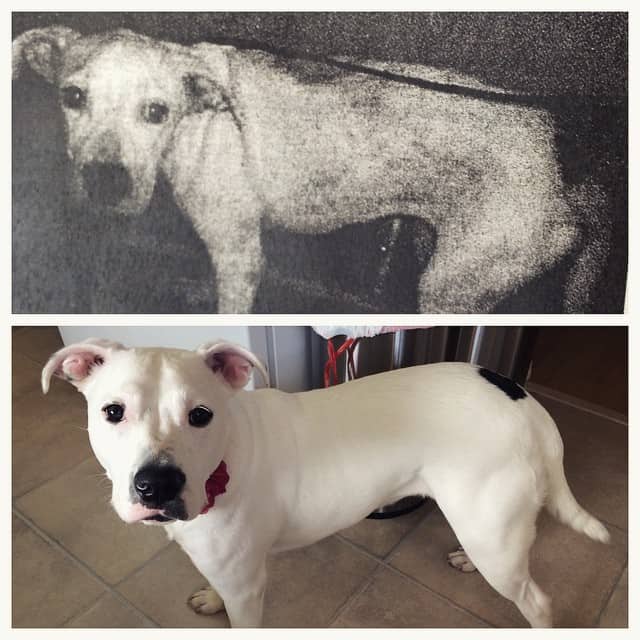
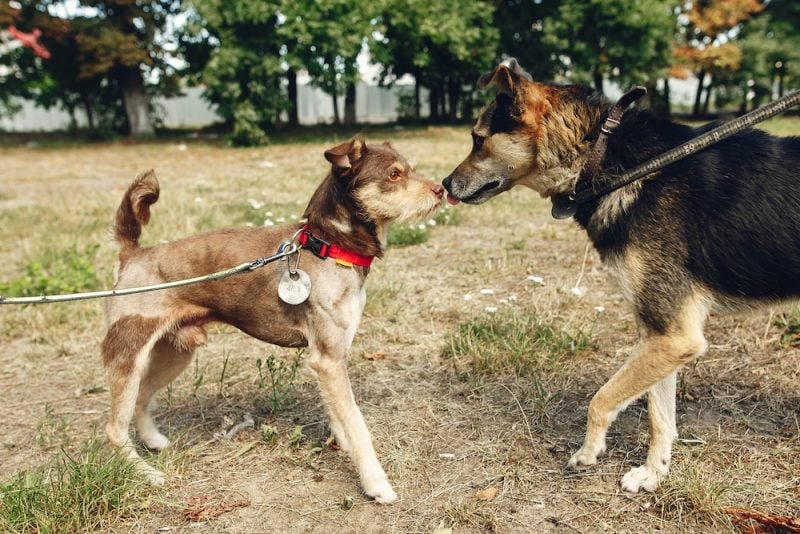
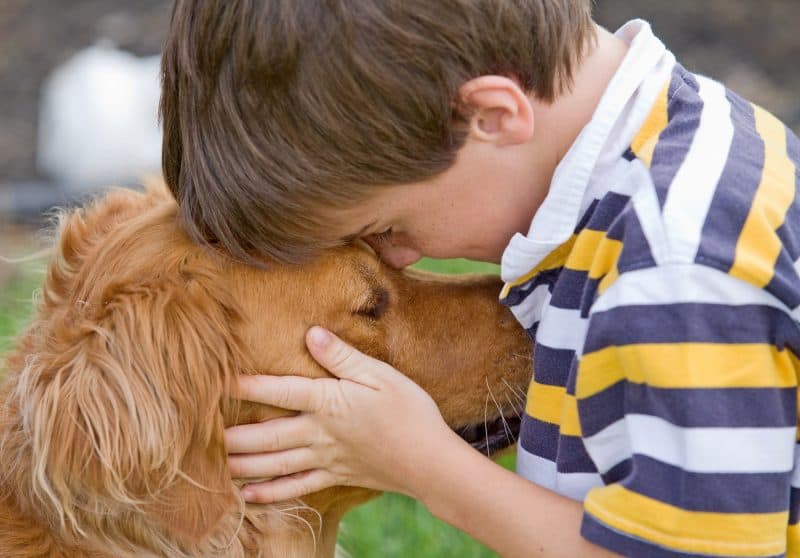

Leave a Comment